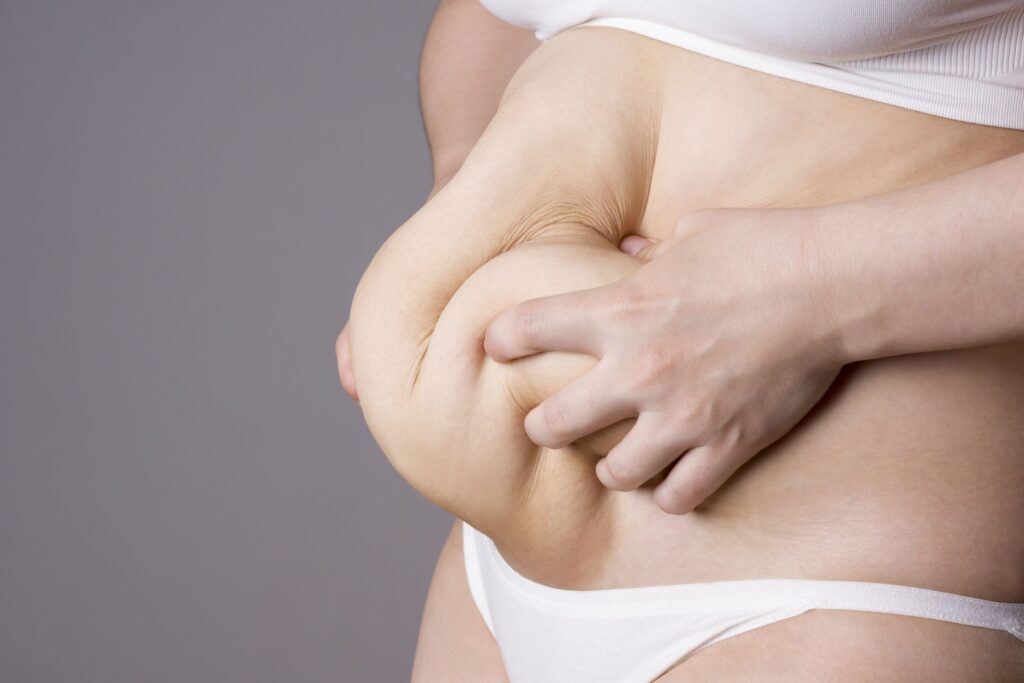Australasian Society of Aesthetic Plastic Surgeons (ASAPS) Member, Dr Alastair Taylor from the CAPS Clinic in Canberra says while pregnancy and motherhood are beautiful experiences for most women, the consequences of carrying a child can last a lifetime.
Chronic lower back pain and urinary incontinence are two of the most common physical consequences of childbirth, impacting significantly on a person’s quality of life. This is a result of a rectus diastasis or separation of the abdominal muscles. Muscle separation is common during pregnancy but usually resolves after the baby is born. If it doesn’t, there will be persistent bulging, weak core strength, lower back pain and incontinence. Mothers can also be left with loose skin overhanging, not responding to exercise. These issues are more common in mothers with high birth weight babies or multiple pregnancies.
Another group of people affected by abdominal separation are people who have gained and lost a large amount of weight. They may be left with a bulge in the middle of the stomach. It might be noticeable only when the abdominal muscles are tense, such as during coughing.
Are you the right candidate for a Tummy Tuck?
- If you have tried exercise and healthy eating but haven’t been able to lose the bulge, then see a Specialist Plastic Surgeon to assess if a Tummy Tuck is right for you.
- If you have an underlying medical condition that may be causing your tummy to bulge, for example, fluid accumulation, this can be a sign of liver/kidney/heart disease or cancer.
- You need to be fit and be of good general health to get general anaesthesia. Remember, a Tummy Tuck is an invasive surgical procedure, and most surgeons will not perform it on patients who risk having complications in theatre.
- Most Specialist Plastic Surgeons wait six months to one year (after childbirth and for weight loss to stabilise) before they’ll agree to perform the procedure.
- Some surgeons do not perform Tummy Tucks on smokers because of complications of poor wound/tissue healing.
What happens during surgery?
A Tummy Tuck is medically referred to as an ‘Abdominoplasty’. A Specialist Plastic Surgeon will use surgical techniques to tighten the abdominal muscles. Excess skin and fat can be removed at the same time.
The extent of the procedure is individualised depending on the patient’s needs. Usually, the incision is along the bikini line so that it can be hidden easily by underwear or swimmers. It can extend halfway around the body.
You will need to wear a compression garment (similar to a corset) for a few weeks after your surgery.
The initial recovery time takes about six weeks, but the full effects of the procedure are apparent after three to six months.
What are the risks of surgery?
The risks mainly occur during the procedure or within the first few weeks of surgery. They include:
- Anaesthetic: There can be drug reactions and side effects related to anaesthetic drugs.
- Bleeding: This can occur even several days after the procedure (most of the time, the surgeon is in a position to deal with it).
- Infection: This can occur at the bikini incision or deep in the tissues.
- Fluid accumulation: Sometimes, fluid may accumulate in the abdominal wall (rarely, this can become infected).
- This operation leaves a long scar. Usually scarring is reasonable but sometimes it can be poor.
- Injuries to internal organs: Injuries to intestines, bladder, uterus and stomach can occur but are very rare.
- Blood clots: Very rarely, a clot may form in the veins of the legs and enter the bloodstream and land in the lungs, causing breathing problems.
Are there any side effects of a Tummy Tuck?
There is usually pain and swelling in the first few weeks after surgery. Most people also report loss of sensation and numbness in the belly; however, the feeling will gradually come back.
Who is the best doctor to perform a Tummy Tuck?
The best doctor to perform your Tummy Tuck is a Specialist Plastic Surgeon. That is someone who is a Fellow of the Royal Australasian College of Surgeons (FRACS). Only doctors with FRACS after their name are accredited to perform surgery. Further to this, you should seek out a FRACS doctor who performs Tummy Tucks regularly.
Is there a Medicare rebate for my Tummy Tuck?
Tummy Tucks have been deemed to be cosmetic procedures by most health insurance companies, and therefore, there is little to no rebate available, except in cases of massive weight loss, defined by the loss of five Body Mass Index (BMI) points.
While there have been recent calls on the Federal Government to reinstate the Medicare Item Number, for women suffering back pain and incontinence, this has not yet happened. However, there is strong evidence to show cause for why this should happen. The research I led, published in the March 2018 edition of the Plastic and Reconstructive Surgery Journal (PRS)[i], showed up to 1.67 million Australian women were suffering from chronic back pain and 3.2 million with stress incontinence as a consequence of pregnancy and childbirth. An abdominoplasty improved back pain by 85 per cent and incontinence by 75 per cent in the 214 women studied.
A Tummy Tuck or Abdominoplasty repairs the rectus diastasis and restores the trunk to its pre-pregnancy shape. It also restores core strength and allows a woman to live a life free of pain and discomfort.
Talk to your GP for a referral to a Specialist Plastic Surgeon to give you the best chance of achieving some assistance with the cost of your Tummy Tuck.
Can rectus diastasis return?
Yes, it can. Should you get pregnant again or have significant fluctuations in weight, your abdomen will lose the flat appearance that you will get after the Tummy Tuck.
[i] Dr Alastair Taylor’s research “Abdominoplasty Improves Low Back Pain and Urinary Incontinence” published in the Plastic and Reconstructive Surgery Journal in March 2018 was awarded the 2019 Best Emerging Author Paper.

